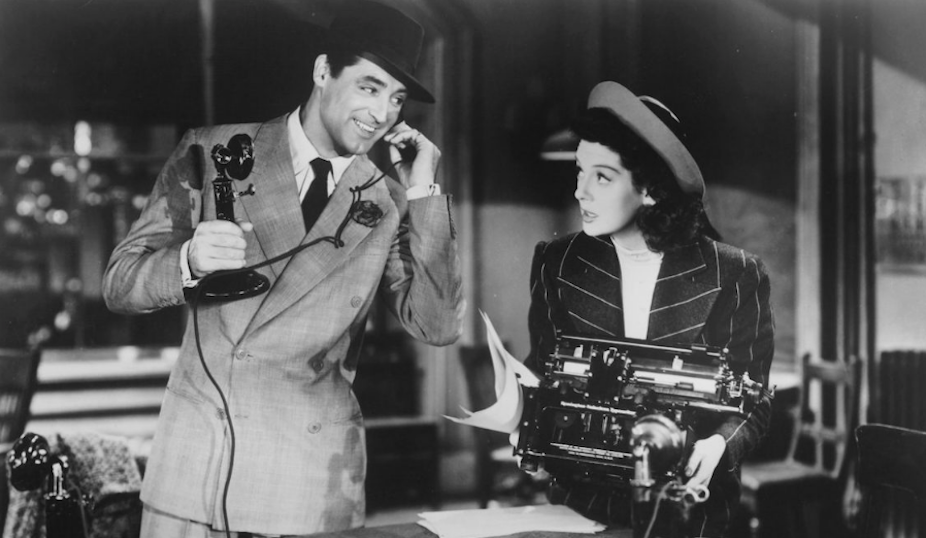These are tough times for journalism – particularly print, widely regarded to be dying on its feet. Investment in titles is practically zero, budgets are being slashed and, for many proprietors, clickbait is king.
So where does that leave quality journalism, the kind that seeks to explain complex and fast-changing events like Brexit, and hold politicians, public figures and big business to account? In peril it might seem. But good journalism is needed now more than ever in these unprecedented times of political crisis, as a vital part of our democracy.
Technology has completely transformed how we consume our news, leaving print as the dinosaur facing extinction. As the immediacy of social media and 24-hour online news has shifted the whole landscape and print readers have declined, newspapers have had to adapt and embrace the digital revolution to augment their print offering.

Polemical comment and opinion pieces proliferate and subjects traditionally considered off limits to serious broadsheets – celebrity, gossip, humour and fashion – have flourished beyond the bounds of the magazine section. Fighting to be heard amid the digital clamour, newspapers have had to bend to the cultural influence of social media and reshape their style and content.
The Conversation entered this changing media landscape in 2011 and has quickly found its place as a bulwark against misinformation in a “post-truth” era. A global online platform where expertise is paramount, it uses academic experts – working with journalists – to analyse and explain complex issues, share their research and innovation, and comment on the big stories and events shaping our world.
A not-for-profit educational entity that invites universities to join as fee-paying members, The Conversation has no adverts, is free to access and our content can be republished free of charge anywhere. For an industry supposedly in decline, it stands as a tremendous success story, claiming 40m readers a month worldwide.
But many digital news platforms have failed to find a way to successfully monetise their business, watching advertising revenues drain away to the likes of Google and other big social media giants. This makes it increasingly hard to make journalism pay. And good journalism costs.
Many editors have found themselves in a quandary, chasing audiences who expect to get their news for free. Some are under enormous pressure to ensure they get clicks. So how is that affecting the quality of their journalistic output? And what does the future of journalism look like under such pressures?

On Saturday 19 October, The Conversation is delighted to be taking part in the University of Dundee’s second Festival of the Future, a celebration of science, arts and culture, with more than 50 events over five days in venues around the city.
We’re holding our own mini JournoFest within the festival, exploring what the future holds for the industry, first with a keynote speech by Polly Curtis, former UK editor-in-chief of the Huffington Post, now visiting fellow at the The Reuters Institute for the Study of Journalism at Oxford University, and an editor and writer at “slow news” outfit Tortoise. Curtis’s talk will examine the burgeoning information divide between those who pay for news and those who rely on free services, and how this is affecting society.
Afterwards we will be holding a panel discussion examining whether editors try too hard to give audiences what they want. The debate will take place in front of a public audience of around 250 people with five distinguished panellists giving their take.
They are: writer and broadcaster Paul Mason; Richard Neville, head of newspapers at DC Thomson; journalist and broadcaster Pennie Taylor; David Clegg, former political editor of the Daily Record and newly installed editor of Dundee’s daily paper, The Courier; and Anna Notaro, senior lecturer in media theory, University of Dundee. The Conversation’s politics editor, Laura Hood, will be chairing the event.
The panel discussion will focus on the interesting paradox in today’s journalism: on the one hand, we are often told that news coverage has dumbed down in recent years, becoming less serious and more celebrity-oriented, with shorter articles, interviews and packages – arguably made worse by the rise of social media and the endless need to satisfy short attention spans and attract clicks.
On the other, there has never been a greater selection of serious long-form media, from The Financial Times to The Ferret, an online investigative outfit based in Scotland – and of course, The Conversation. But a third of Britons say they are avoiding the news because they are turned off by all the Brexit coverage, while Channel 4 News and the Today Programme are among those blaming it for falling audience numbers.
So what really is the direction of travel? Are we well served with serious news coverage and dumbing down at the same time as editors seek to give audiences what they want? Are we seeing a widening gap between a freakishly well informed minority and a mass rump that is being left behind? How do we ensure that journalism in the UK remains in robust health and up to the job of holding those in power to account?
Come along and find out.
Both events will take place on Saturday 19 October at the University of Dundee’s Bonar Hall (Park Place, Dundee, DD1 4HW), with Polly Curtis’s keynote speech at 2.15pm and the panel debate at 4pm. Tickets for both events cost £5 (£3), and you can purchase them here.

